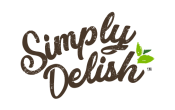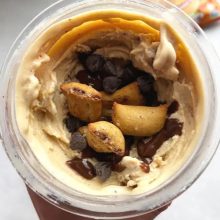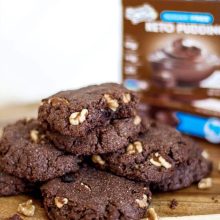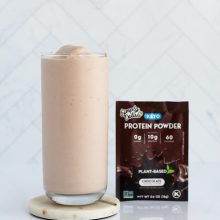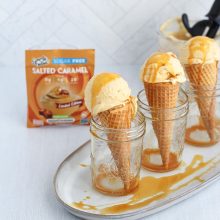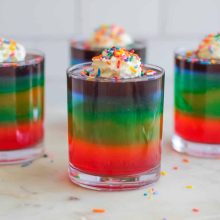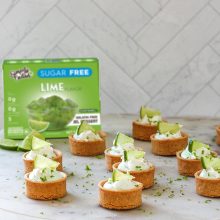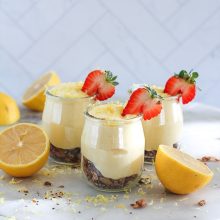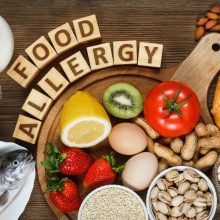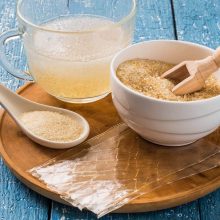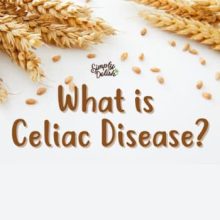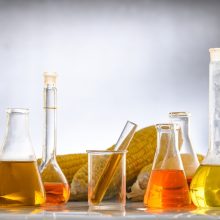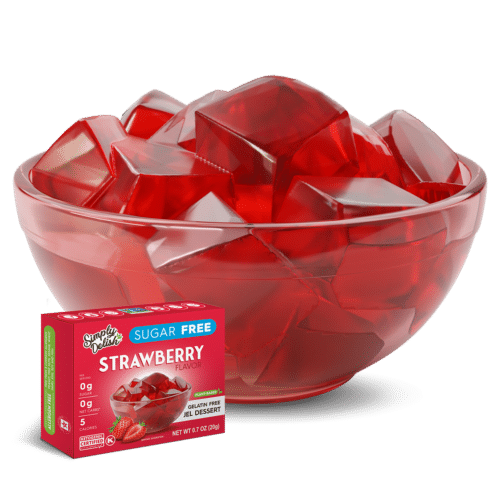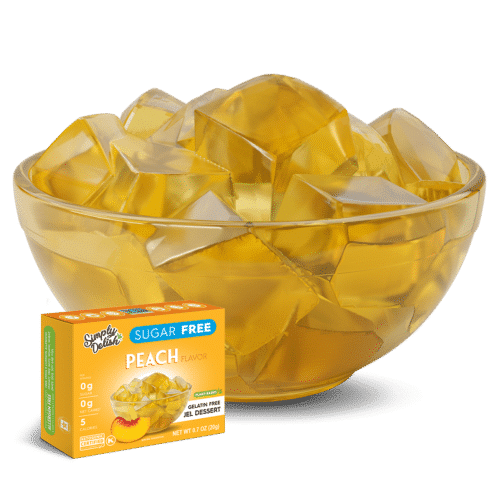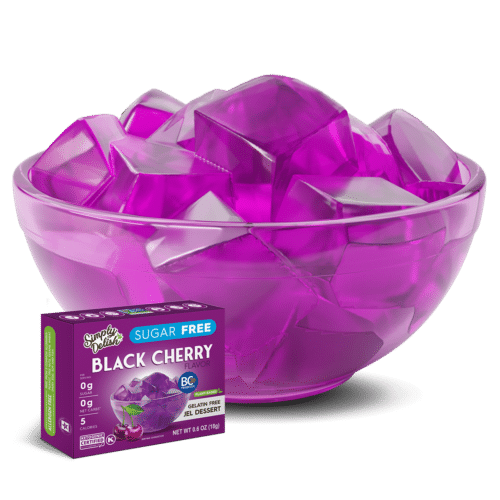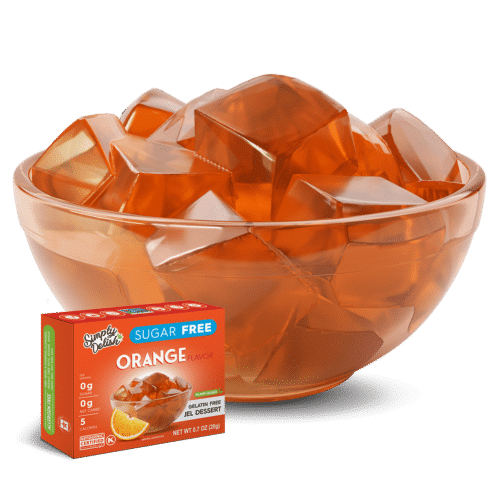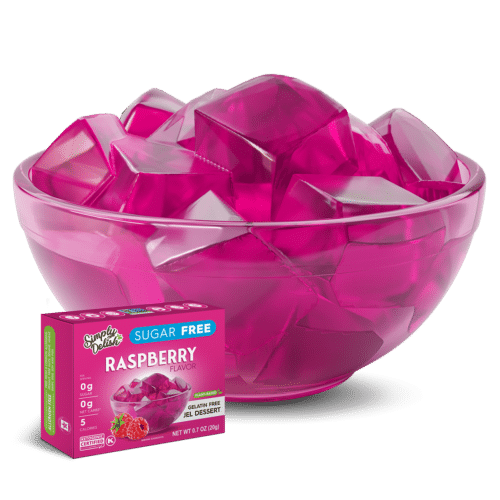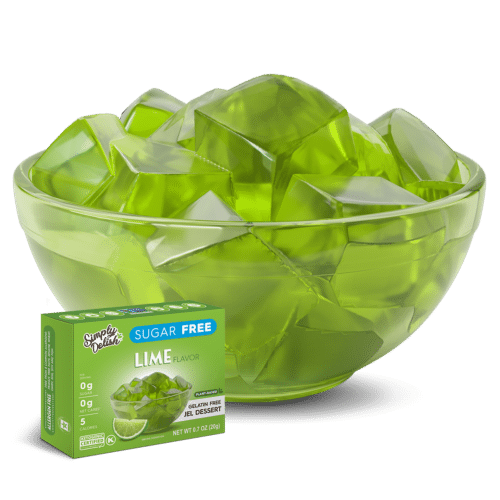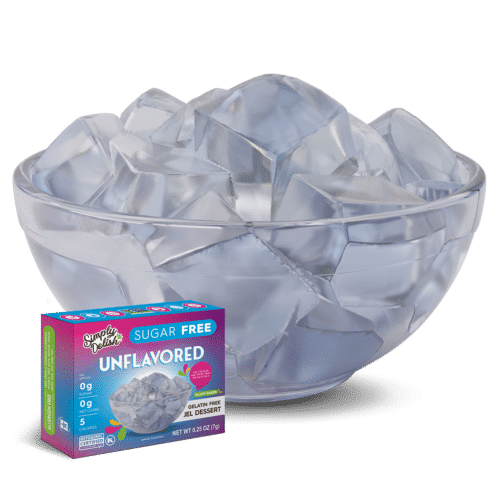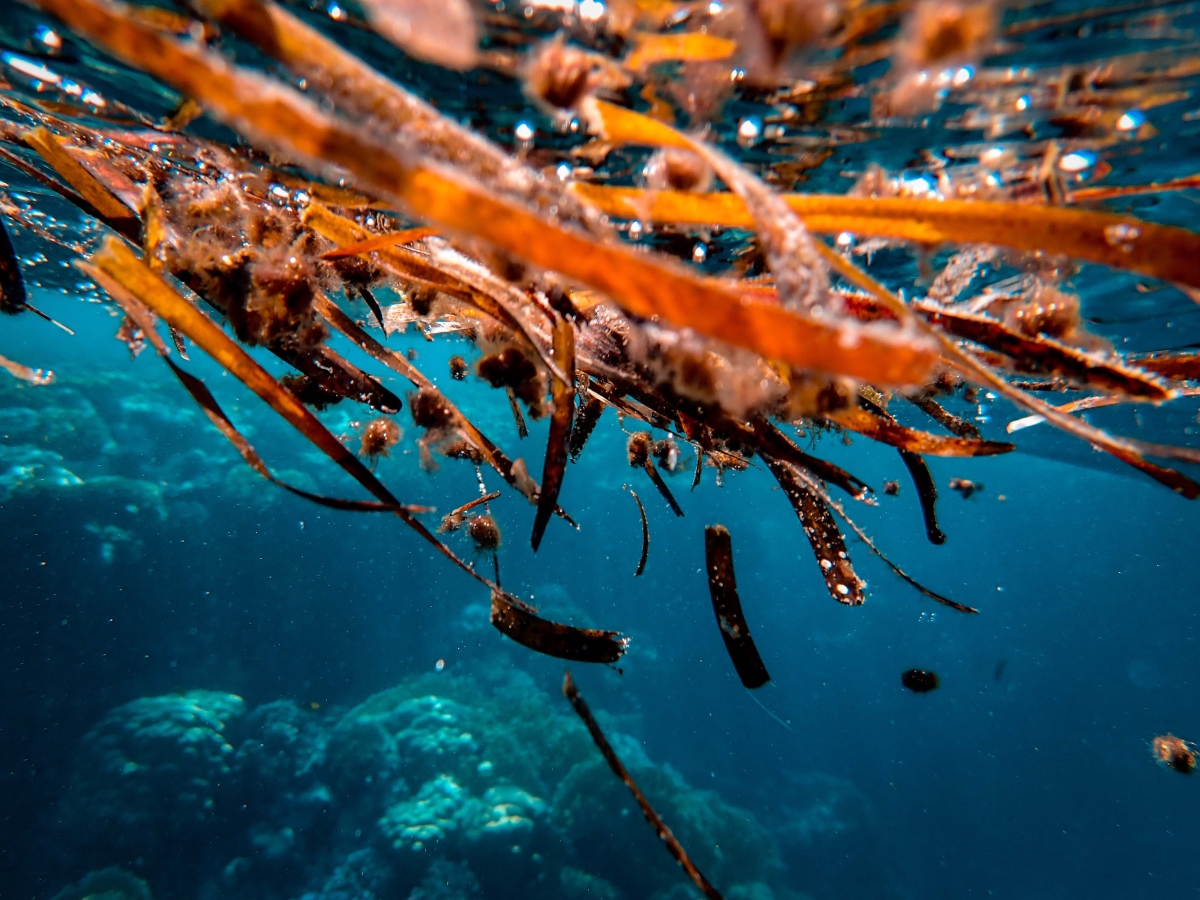
As a leader in innovative plant-based desserts, Simply Delish is committed to the quality and safety of all our ingredients. We value transparency and will always strive to produce a truly authentic product using ethically sourced ingredients. One ingredient that is particularly in the spotlight is Carrageenan. The Simply Delish Jel Desserts contain carrageenan and we would like to provide you with information about why we choose to use it and why we are confident the carrageenan that we use is a safe food ingredient in our products.
What is carrageenan?
Carrageenan is a natural, vegan, plant-based ingredient found in many foods. It is an ingredient that is essential to many vegetarian, vegan, halal, kosher, and organic food options around the world. Carrageenan is made from red seaweed that is sustainably grown and harvested by family farmers from oceans around the world. It is one of nature’s perfect stabilizers and thickeners.
Carrageenan is used to improve the mouth-watering texture, yummy taste, and beautiful appearance of many foods around the world including our delicious Jels. Three types of Carrageenan that are most widely used: Kappa, Iota, and Lambda Carrageenan.

Did you know?
The name Carrageenan is derived from a species of seaweed known as Carrageen Moss or Irish Moss in England, and Carraigin in Ireland. Carraigin has been used in Ireland since 400 A.D. as gelatin and as a home remedy to cure coughs and colds. (1)
Officially known by its species name as Chondrus crispus, Irish moss is also referred to as red algae or sea moss. The thin, flat, reddish-purple leaves branch out in a repeating pattern from a central stem and the plant grows primarily in the colder waters of the eastern and western northern Atlantic ocean.
Simply Delish has gone to great lengths and sourced the highest grade we could source which is NON-GMO verified carrageenan for our amazing Simply Delish Jel Dessert products. Our mission is to only source the best and safest ingredients for all our family of Simply Delish products.
What is the process of carrageenan?
Hundreds of years ago, the Irish would make carrageenan in their kitchens by boiling salt, seaweed, and alcohol. Then, they would blend those three ingredients to release natural carrageenan.
Since then, the process used to manufacture carrageenan is very similar and still, very minimal, meaning it stays close to the natural form. First, the seaweed is placed in boiling water that is slightly alkaline (“alkaline” just something higher on the pH scale; for example, watermelon is alkaline and has a high pH, while vinegar is acidic and has a low pH). Finally, the seaweed is dried, chopped, and ground into a fine carrageenan powder.
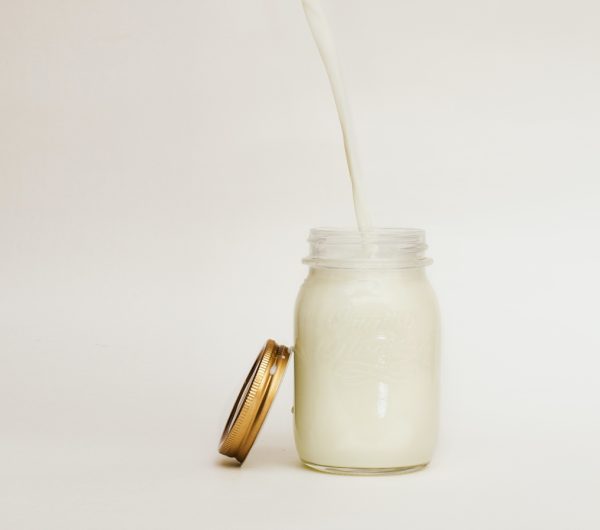
What foods and beverages use carrageenan?
A: Carrageenan is an essential ingredient in many of the foods and beverages consumed every day. It’s also widely used in the food industry, mostly as a thickener and gelling agent. Typically you’ll find it in foods such as those delicious plant-based milk, like nuts and soy milk, to deli meats, protein shakes/powders, chocolate milk, yogurts, popsicles, prepared meals such as frozen burritos and pizza, ice cream, and infant formula.
Unlike gelatin, which comes from animal products, carrageenan is appropriate for vegans and is naturally, grown in water.
Why is carrageenan in our food?
A: Carrageenan is utilized as a food additive for many different reasons. First, it is used in ice cream to give it the smooth, creamy texture that we all know and love. In that yummy chocolate milk and nuttylicious almond milk, carrageenan is used as a stabilizer to keep the chocolate from separating or the ground nuts from settling to the bottom of the carton. In addition to being used as a chocolate stabilizer, it is also used to stabilize and suspend nutrients in liquid infant formula to make sure babies receive the nutrition they need. Another use is that it can reduce the sugar content in jams and jellies, reduce sodium in lunch meats while keeping them moist and fresh, and improve and protect the overall nutritional value in several foods without sacrificing taste.
So, if we see it in so many foods, then it leads us to the following question..
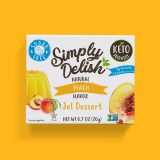
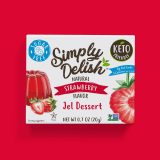


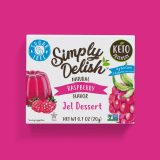

Can carrageenan be in foods that are on the market as Organic, Vegetarian, Halal, or Kosher like Simply Delish?
A: Carrageenan is a VEGAN, PLANT-BASED ingredient that is essential to many vegetarian, vegan, halal, kosher, and organic food options. It is found in some products to replace animal fats; in others, it is used in place of gelatin, which is derived from animal collagen. Without carrageenan, some products would not meet organic standards or vegetarian, halal, or kosher diets.
Carrageenan is the only stabilizing ingredient used in liquid organic infant formula. Removing it means new moms and dads may lose this organic option for their babies.
But this brings us to our next question as many critics are calling for a ban, so..
Is Carrageenan safe to consume?
A: Yes, we have done extensive research, and this has led us to conclude that food-grade carrageenan is safe to eat. As suggested by Tobacman and Cornucopia, extensive research has shown no correlation between carrageenan and the claims of carrageenan being dangerous. Instead, reliable science continues to demonstrate that ingested carrageenan poses no threat whatsoever. To give the story a little bit of background as to where this all started.
In June 2008, Joanne K. Tobacman, MD, an associate professor in the department of medicine at The University of Illinois at Chicago, filed a citizen petition with the FDA to ban carrageenan. In her petition, Tobacman cited several studies she co-authored that found harmful effects associated with the additive. The studies used amounts of food-grade carrageenan that are lower than those ingested in the typical American diet. In each study, the food-grade carrageenan caused inflammation.
Equally respected scientists have detailed the reasons that this evidence is flawed and misleading, concluding that there is no valid reason to ban its use.
So, is carrageenan really harmful?
A: As suggested by Tobacman and Cornucopia, extensive research has shown no correlation between carrageenan and the claims of carrageenan being dangerous is believed by many that Tobacman used several scientifically questionable methods.
Other, non-biased researchers have been unable to replicate Tobacman’s results under controlled conditions. Instead, ongoing research has, again and again, stated that carrageenan is safe for use as an ingredient in the food. As a result, respected toxicology experts and the FDA itself in a 2008 letter to Tobacman have openly refuted her anti-carrageenan claims, and regulatory agencies around the world affirm its safety and continue to approve its use in foods.
Overall many reliable sciences continue to demonstrate that ingested carrageenan poses no threat whatsoever.
Does carrageenan cause inflammation?
Within this article, we will discuss the common concern on the different forms of carrageenan and if they are safe for you. Yes, there are different forms as you would have read in the studies, and one form is not a food-grade at all – Poligeenan. Poligeenan may have been used in the studies and misattributed the results to food-grade carrageenan.
Is Carrageenan the same as Poligeenan?
A: No. Carrageenan is a natural substance which you can find in seaweed, also, you can’t find poligeenan in nature.
No, carrageenan is not the same thing as poligeenan.
What is Poligeenan?
A: Poligeenan is a synthetical substance that you can’t find in nature. If you can’t find it in nature, how is it made? Through the process of subjecting seaweed to intense temperatures and boiling it in acid, breaking down the molecular chains in the process.
In poligeenan production, processed seaweed is subjected to extremely high temperatures and powerful acids, breaking down the molecular chains in the process. This results in something of very low molecular weight. Think of the size differences between a manhole cover and a nickel, and you’ll get a feel for the differences in molecular weight between carrageenan and poligeenan.
While food-grade carrageenan, which has a high molecular weight, cannot be absorbed during digestion, poligeenan’s low molecular weight means it could be possibly leading to some of the health issues identified in Tobacman’s work as mentioned above. However, you won’t find poligeenan in foods.
So now that we have gone through the various studies, I guess our next burning question is…
How does Carrageenan benefit my health?
A: Carrageenan is a food ingredient that replaces sodium in lunch meats. It can take the place of fats, oils, and sugar in some of our favorite sweet treats.
According to an article written by the Huffpost, they list five ways that one of the world’s most
popular food additives (Carrageenan) might be providing you with formerly unrecognized health benefits:
– Antioxidant Support
– Improved Gut Health
– Reduced Cholesterol Levels
– Treatment for Common Cold and Flu
– Healthy Alternative to Unhealthy Foods
We do hope this article has helped you understand more and shed some light on the topic. For more information on Simply Delish, please visit our FAQ page.
We welcome you to read some of the research on your own and not just take our word for it If you have any questions, please email us at [email protected].
